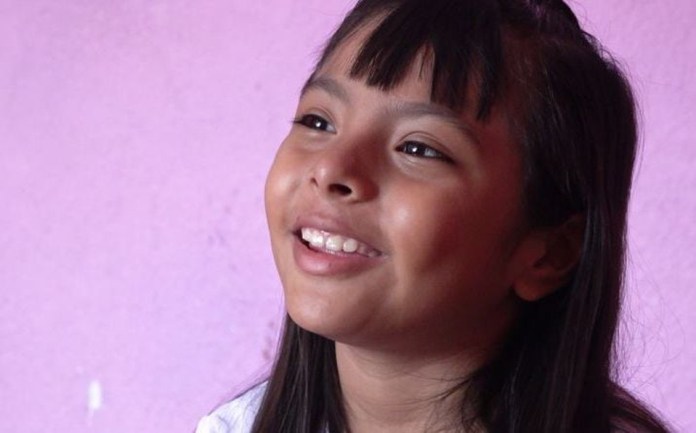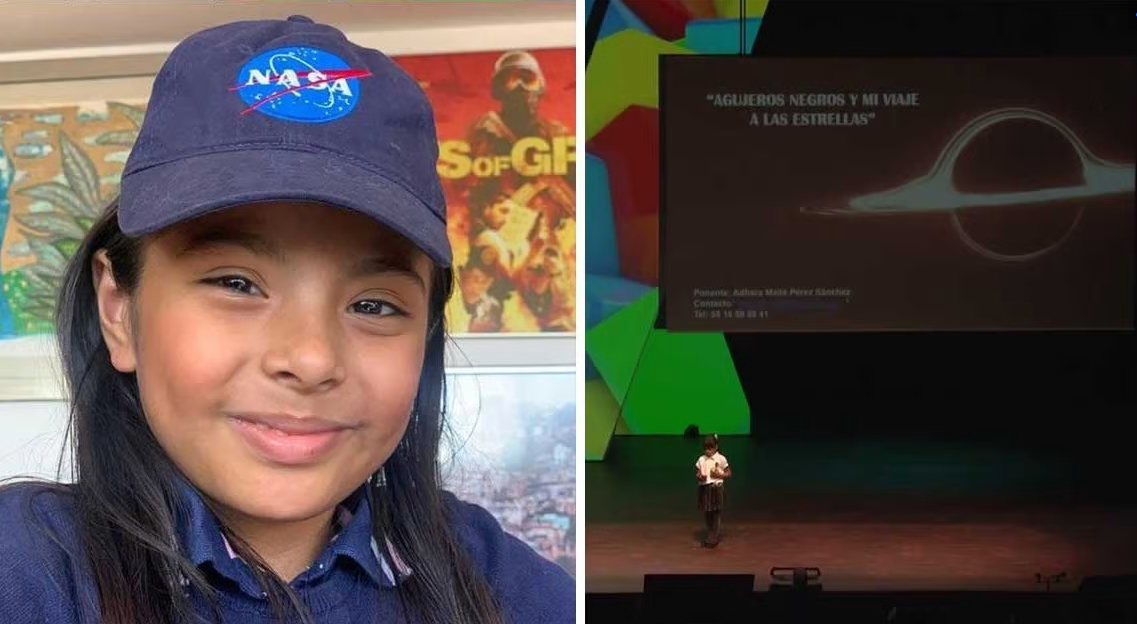9-year-old Mexican Girl With Higher IQ Than Albert Einstein Already Studding To Be Astronaut
When Adhara Pérez was three years old, she was diagnosed with Asperger’s syndrome. Her classmates tormented her terribly, but during treatment, her parents learned that she had a higher IQ than Albert Einstein. Adhara demonstrated her potential by graduating from elementary school at the age of five, middle school at the age of six, and high school at the age of eight. Adhara, who is only ten years old, is simultaneously pursuing two degrees.
Adhara Pérez had an IQ score of 162, which was slightly higher than Albert Einstein’s and Stephen Hawking’s, both of whom had IQ ratings of around 160. (They were never put to a formal test.) Prior to this finding, Pérez was an Asperger’s child who had difficulty with certain parts of her development, such as social interaction with other children her age. “I was made a laughingstock at school,” Adhara alleged. Students teased her, calling her “oddball” and “weirdo.”
“I saw Adhara playing in a small house, and they had her tied up,” says the narrator. “And they started chanting, ‘Oddball, weirdo!'” recalls her mother, Nallely Sanchez. The narrator states, “Then they started hitting the little house.” “I don’t want her to suffer,” I told her as a result.
Pérez got despondent as a result of the incident and refused to return to school. Her teachers claim she was bored in class and frequently slept through it. As a result, her mother decided that the traditional educational system was not the best fit for Ahara and took her to a therapist for an evaluation. Despite the family’s financial difficulties, the mother wanted Adhara to have a great future. The therapist assisted her in finding a learning setting that was ideal for Adhara’s abilities. After only a few short years, the little girl graduated from high school. She is now pursuing two online degrees, one in systems engineering and the other in industrial engineering with a mathematics focus. In addition, she enrolls in astronomy and gravitational waves courses.

Pérez has published a memoir on her experiences, as if she wasn’t already accomplished enough. “Do Not Give Up” is a colloquial translation of the title. She was also named one of the 100 Most Powerful Women in Mexico by Forbes México in 2019. She was working on a wristband with molecules at the time to monitor the emotions of children with severe problems in order to predict and prevent seizures and other complications.
Because of her personal experiences, Adhana understands the problems that these youngsters face. She suffered a severe seizure when she was four years old that nearly put her into a coma. Instead, she had to undergo physical therapy for a year since she lost movement in her hands.
“Back then, Adhara modeled herself after Stephen Hawking, who declared that despite having a disability, he was able to do great things,” Sánchez added.
In addition, after her encounters with bullies, Albert Einstein became her hero. “They didn’t believe in Albert Einstein when he was young; they believed his theories were ridiculous,” her mother stated, “but over time he proved them, and that is why Adhara appreciates this guy.”
In addition, Pérez has been offered a spot at the University of Arizona. Meanwhile, Pérez is preparing for the entrance exam by studying English and continuing to pursue her interest in astrophysics. She wants to be an astronaut and work for NASA one day.
The term “intelligence quotient” is short for “intelligence quotient.” People’s intellectual ability and potential in various cognitive skills, such as problem-solving and reasoning, are assessed using these tests. In a nutshell, it’s an IQ test (not to be mistaken for a test of knowledge). An IQ test’s average score is 100. A high IQ is defined as a score of 130 or more, demonstrating the uniqueness of Adhara Pérez’s higher score of 162.
It’s important to remember that an IQ test isn’t the “be all, end all.” Many academics disagree with these exams, questioning if IQ can even be assessed. Furthermore, the tests themselves may not be reliable, as the results may be influenced by factors such as nutrition, health, culture, environment, and education. A 2010 study indicated that African countries had lower overall scores, casting doubt on the veracity of IQ tests.
In any case, IQ levels have little bearing on a person’s life or achievement. Adhara Pérez, on the other hand, appears to have a lot of potential to make the world a better place. We’re excited to watch what she accomplishes!
Source: goalcast.com










